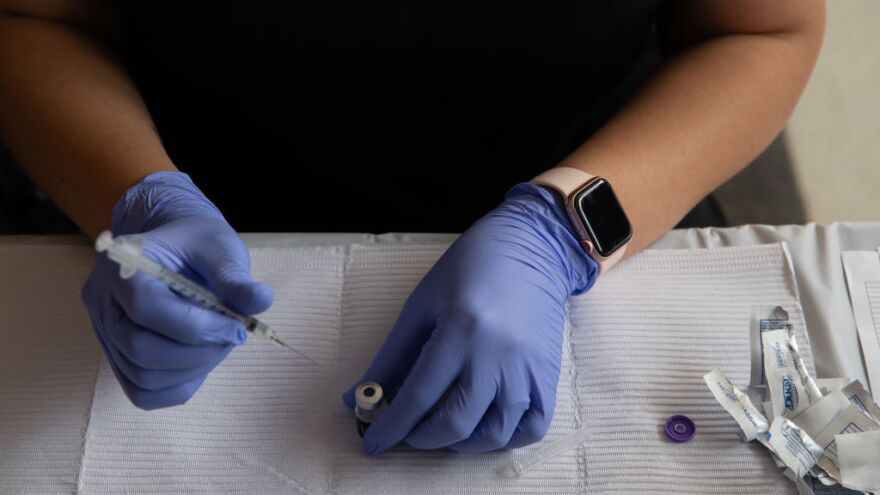Surveys have shown that as many as half of unvaccinated workers say they will leave their jobs if they're forced to get the COVID-19 shot, but in reality few of them actually quit. That's according to an article in The Conversation, a nonprofit news organization that covers academic research.
Researchers looked at companies that have vaccine mandates in place and saw that, so far, only a fraction of workers leave their jobs when it comes down to it.
"In other words, vaccine mandates are unlikely to result in a wave of resignations — but they are likely to lead to a boost in vaccination rates," they write.
Here's some data they cite:
"Houston Methodist Hospital, for example, required its 25,000 workers to get a vaccine by June 7. Before the mandate, about 15% of its employees were unvaccinated. By mid-June, that percentage had dropped to 3% and hit 2% by late July. A total of 153 workers were fired or resigned, while another 285 were granted medical or religious exemptions and 332 were allowed to defer it."
The situation seems to be playing out in New York, too, where fears of a mandate for health care workers have prompted officials to prepare for possible staffing shortages. But even there, the mandate appeared to force an uptick in vaccinations.
The researchers say there are a few ways to minimize further the number of people who would quit over such a policy, including building trust with employees, making vaccination accessible and engaging trusted messengers such as doctors and family.
This story originally published in the Morning Edition live blog.
Copyright 2021 NPR. To see more, visit https://www.npr.org.



